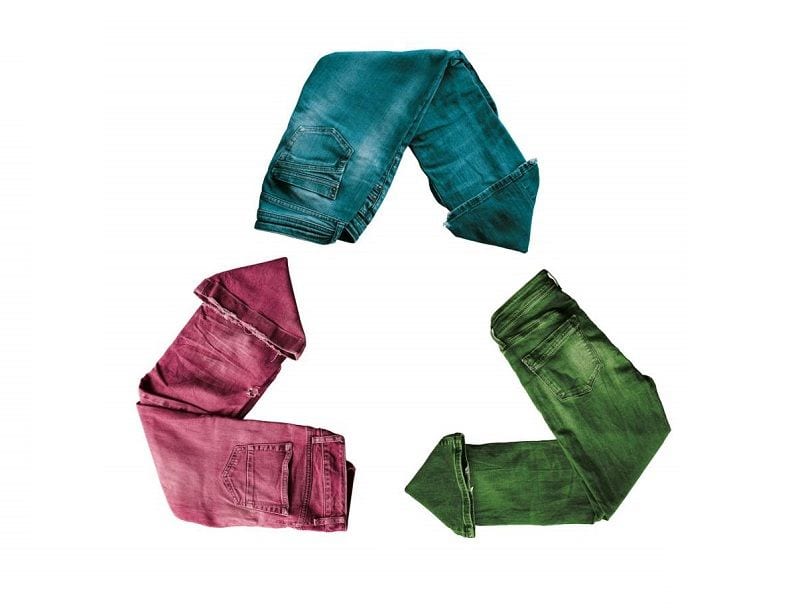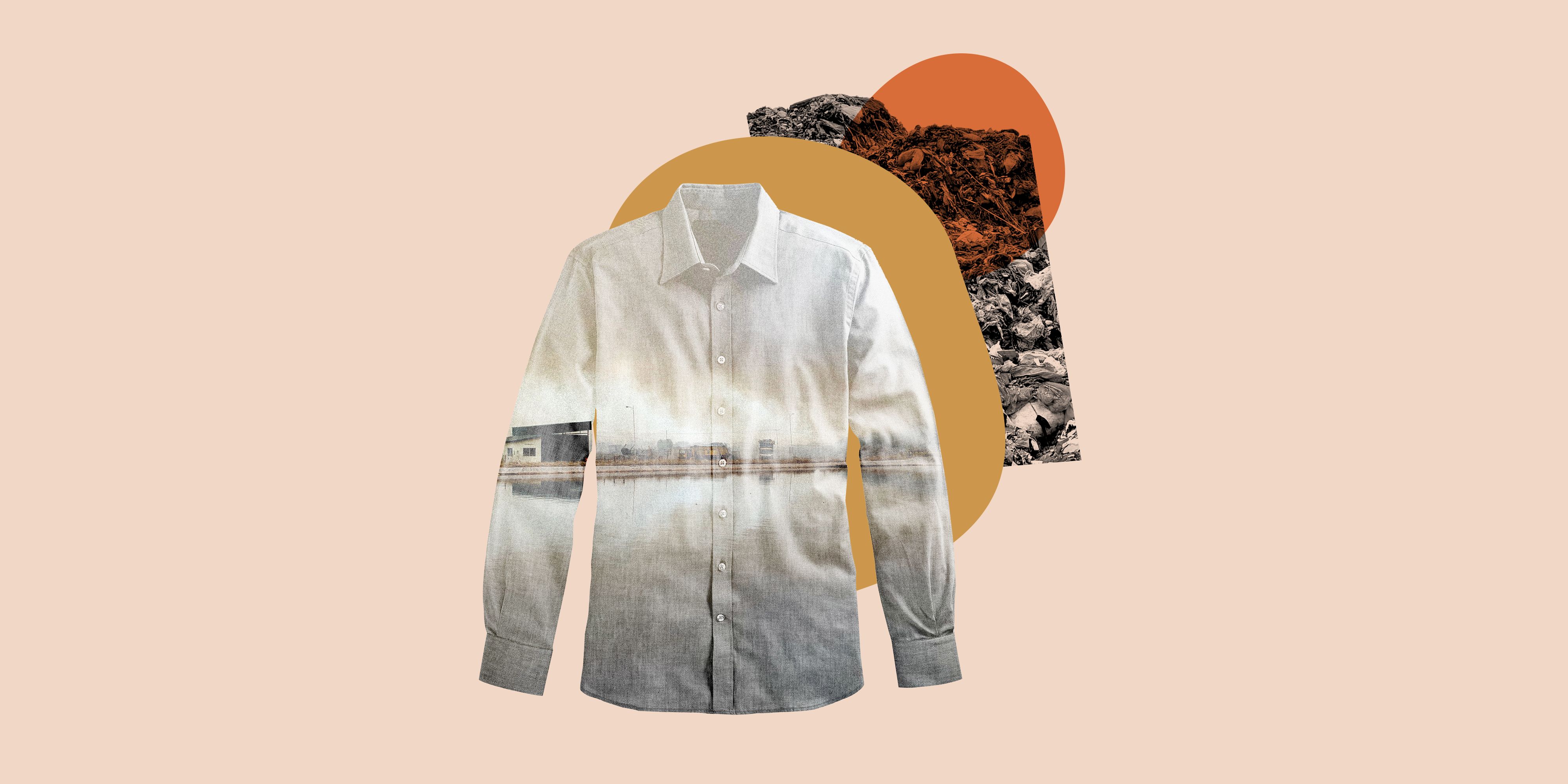Keep Ahead of the Contour by Checking Out Ingenious Fashion Trends
In a sector as vibrant as fashion, remaining ahead entails more than simply following current patterns-- it demands an expedition of development. The merging of technology and style heralds a brand-new era of customer engagement.

Welcoming Smart Textiles
In the last few years, the apparel industry has actually observed a transformative shift with the integration of smart textiles, an innovative innovation that blends technology with fabric. This development stands for not just a fusion of aesthetic appeals and performance yet likewise a significant leap towards sustainability and personalization in style. Smart fabrics, also called e-textiles, installed sophisticated electronics such as sensing units and conductive strings within the textile, allowing garments to connect with the user or the environment.
These textiles are designed to monitor physical specifications, such as heart price or body temperature level, supplying real-time health analytics. Past health applications, smart fabrics are also being utilized for adaptive apparel, which can alter color or pattern in action to environmental stimulations, therefore providing a vibrant style experience.
Furthermore, the advancement of energy-harvesting fabrics that produce power from motion or sunlight is paving the way for self-dependent wearable modern technology. This advancement is appealing to environmentally mindful customers and designers intending to lower the ecological impact of fashion. As r & d in this field advancement, wise fabrics are expected to come to be increasingly prevalent, improving the landscape of modern-day fashion with their multifunctional capacities.
The Increase of 3D Printing
Revolutionizing the production landscape, 3D printing has arised as a game-changer in the garment industry. This cutting-edge technology has actually allowed designers to press the limits of imagination, producing detailed and tailored garments that were formerly unthinkable. By leveraging digital layout and additive production, 3D printing facilitates the production of intricate geometries and patterns, permitting developers to explore brand-new appearances and structures.
A significant benefit of 3D printing in vogue is its capability to create on-demand, decreasing waste and decreasing supply needs. This efficiency not only optimizes production processes however additionally allows for fast prototyping, allowing designers to bring their visions to life in a shorter timeframe. In addition, 3D printing supports customization to a degree unequaled by standard methods, providing special styles and tailored fits customized to specific consumer preferences.
The rise of 3D printing has also democratized fashion, making it available to emerging developers that can currently produce premium pieces without considerable monetary investment in standard production facilities. As innovation proceeds to breakthrough, the style sector is positioned to harness the complete capacity of 3D printing, checking out new materials and methods that will most certainly redefine just how style is conceived and produced.
Sustainable Style Technologies
As the fashion sector faces the pushing need for ecological responsibility, sustainable style developments have arised at the leading edge of transformative adjustment. The expanding awareness of ecological impact has fueled a change in the direction of even more eco-conscious methods and materials. Designers and brands are now focusing on sustainability, incorporating methods that minimize waste and minimize carbon footprints.
One substantial growth is the rise of circular fashion, which stresses recycling and upcycling to extend the lifecycle of garments. This approach not only lowers waste but likewise encourages consumers to take on a much more mindful approach to apparel usage.
Another innovation depends on the fostering of ingenious dyeing strategies that use natural dyes or waterless processes, thus lowering the huge amounts of water and chemicals commonly used in fabric dyeing. Additionally, improvements in biotechnology have actually resulted in the development of lab-grown leather and materials, providing environmentally friendly and cruelty-free options to standard materials. Via these pioneering initiatives, the fashion business is making significant strides in the direction of an extra sustainable future.

Tech-Integrated Apparel
Tech-integrated apparel stands for a cutting-edge combination of style and modern technology, reshaping how people engage with their garments. This cutting-edge domain is marked by the inclusion of clever fabrics and embedded electronic parts, boosting both functionality and visual charm. From health and fitness trackers embedded in sportswear to heated coats regulated using smart device applications, tech-integrated garments provides consumers unmatched ease and adaptability.
Pioneering brands are driving this pattern, concentrating my website on producing garments that react to environmental stimulations or customer commands. For circumstances, some garments can alter shade or pattern in feedback to temperature shifts, while others integrate biometric sensors to keep track of health metrics like heart rate or anxiety levels. The smooth integration of technology right into textiles additionally extends to ecological sustainability, with efforts to develop self-cleaning fabrics or garments that get used to weather, hence decreasing the need for several layers.
In addition, the development of wearable technology is not just limited to garments but includes devices like watches and glasses, further expanding the extent of tech-integrated fashion. As the sector remains to introduce, the potential for personalization and personalization in clothing expands, offering customers unique, tech-enhanced fashion experiences that satisfy their individual requirements and preferences.
Future of Virtual Fashion
In the last few years, the future of digital style has actually arised as a transformative pressure within the industry, leveraging innovations in electronic modern technology to redefine how fashion is created, experienced, and eaten. By incorporating enhanced truth (AR), online reality (VIRTUAL REALITY), and 3D style tools, designers can now craft immersive and interactive experiences that transcend conventional style borders. Digital style enables for the production of garments that exist only in electronic atmospheres, offering unlimited possibilities for innovation without the constraints of physical production.
This electronic shift not just provides chances for creative expression yet likewise addresses sustainability concerns inherent in traditional fashion practices. Cape Town Sustainable Fashion. By eliminating the need for physical sources, virtual fashion decreases waste and minimizes carbon footprints. Additionally, the surge of digital style lines up with the boosting customer need for customized and distinct experiences, as digital garments can be customized and customized to read this specific choices easily

Final Thought
The fashion industry's future lies in the assimilation article of lasting techniques and cutting-edge technologies. Digital style is positioned to redefine consumer interactions.
In recent years, the style industry has observed a transformative shift with the combination of wise textiles, an advanced innovation that blends modern technology with material.As the style industry grapples with the pressing requirement for ecological duty, sustainable style technologies have arised at the leading edge of transformative modification.In current years, the future of online style has actually emerged as a transformative force within the sector, leveraging advancements in digital technology to redefine exactly how fashion is produced, experienced, and consumed. The increase of online style straightens with the increasing consumer demand for one-of-a-kind and customized experiences, as virtual garments can be tailored and customized to specific choices with ease.
The fashion sector's future lies in the integration of ingenious modern technologies and sustainable methods.
Comments on “The Future of Cape Town Sustainable Fashion in the Global Market”